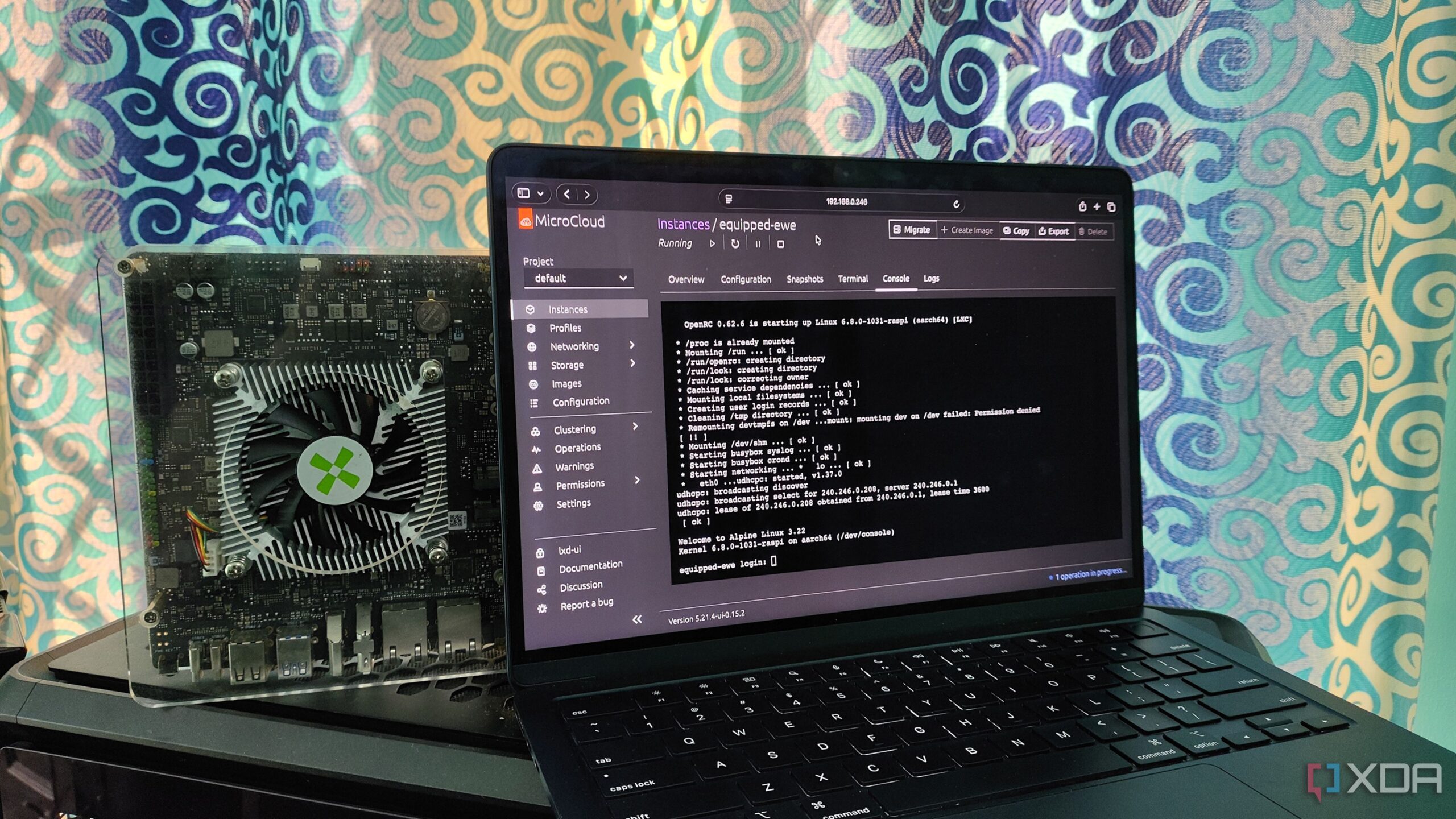Top Stories
Canonical’s MicroCloud Launch: A Game-Changer for Home Labs

UPDATE: Canonical has just launched its latest software, MicroCloud, a groundbreaking platform for home lab enthusiasts that promises to transform how users manage virtualization and containers. This innovative solution is already making waves among tech aficionados and has exceeded expectations within days of its release.
MicroCloud is a serious contender in the virtualization space, especially for users seeking powerful yet easy-to-use solutions. This platform uniquely combines support for both virtual machines (VMs) and lightweight containers, a feature rarely found in free server distributions. Users can now deploy LXD containers alongside VMs, making MicroCloud a versatile option for low-power devices, including old machines and single-board computers like the Raspberry Pi.
The launch has been particularly well-received by those who appreciate high-availability (HA) setups. MicroCloud employs micro-service versions of popular tools to facilitate clustering, providing enhanced resilience and fault tolerance. Its networking features, managed by MicroOVN, and distributed storage handled by MicroCeph, ensure robust performance for demanding applications.
What sets MicroCloud apart is its compatibility with ZFS, allowing users to create efficient data pools and volumes easily. The platform’s intuitive interface simplifies server deployment and cluster node addition, making it accessible even to those new to virtualization. Users can manage everything from storage pools to snapshots without extensive documentation.
MicroCloud runs seamlessly on Raspberry Pi devices, a feature that surprised many users who anticipated compatibility issues. The support for Arm systems means that hobbyists can now utilize their Raspberry Pis for powerful home lab applications without the typical hurdles associated with similar platforms.
Despite its strengths, MicroCloud is not without limitations. Users coming from established platforms like Proxmox may find the lack of external backup support for virtual guests frustrating. However, the built-in snapshot functionality remains effective, and the overall performance makes MicroCloud a compelling choice for those looking for a free home server solution adept at running both VMs and containers.
As the tech community eagerly adopts MicroCloud, many are already sharing their experiences online. With its user-friendly design and powerful capabilities, this platform is poised to become a favorite among home lab enthusiasts worldwide.
Stay tuned for more updates as users continue to explore the full potential of Canonical’s latest offering.
-

 Science1 month ago
Science1 month agoIROS 2025 to Showcase Cutting-Edge Robotics Innovations in China
-

 Science2 weeks ago
Science2 weeks agoUniversity of Hawaiʻi at Mānoa Joins $25.6M AI Initiative for Disaster Monitoring
-

 Lifestyle1 month ago
Lifestyle1 month agoStone Island’s Logo Worn by Extremists Sparks Brand Dilemma
-

 Health1 month ago
Health1 month agoStartup Liberate Bio Secures $31 Million for Next-Gen Therapies
-

 World1 month ago
World1 month agoBravo Company Veterans Honored with Bronze Medals After 56 Years
-

 Politics1 month ago
Politics1 month agoJudge Considers Dismissal of Chelsea Housing Case Citing AI Flaws
-

 Health1 month ago
Health1 month agoTop Hyaluronic Acid Serums for Radiant Skin in 2025
-

 Lifestyle1 month ago
Lifestyle1 month agoMary Morgan Jackson Crowned Little Miss National Peanut Festival 2025
-

 Science1 month ago
Science1 month agoArizona State University Transforms Programming Education Approach
-

 Business1 month ago
Business1 month agoTruist Financial Increases Stake in Global X Variable Rate ETF
-

 Sports1 month ago
Sports1 month agoYamamoto’s Mastery Leads Dodgers to 5-1 Victory in NLCS Game 2
-

 Top Stories1 month ago
Top Stories1 month agoIndonesia Suspends 27,000 Bank Accounts in Online Gambling Crackdown









